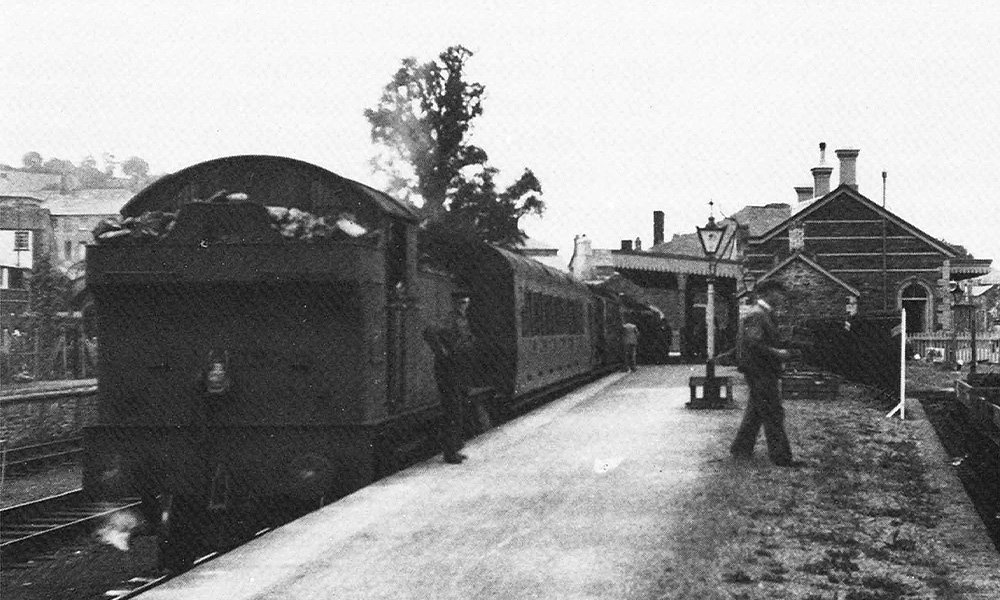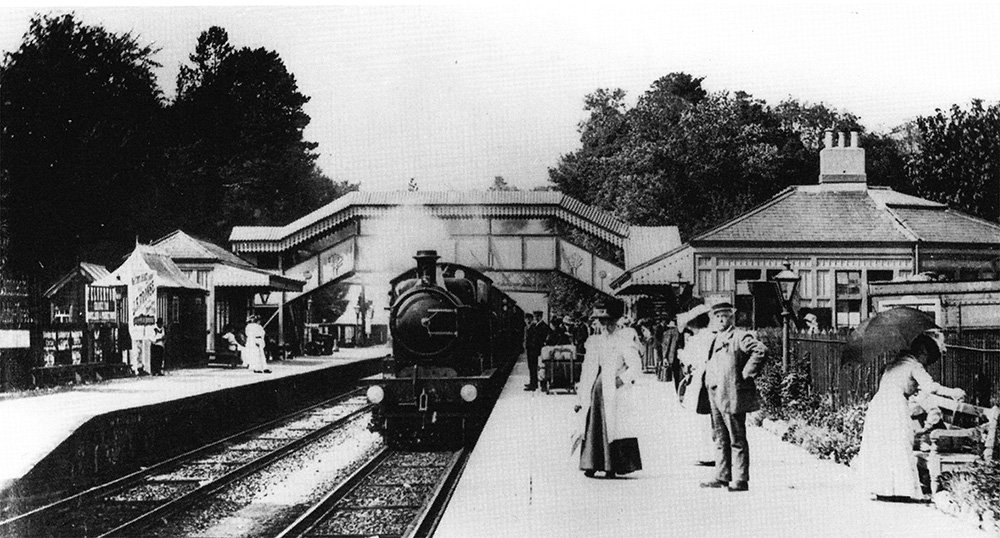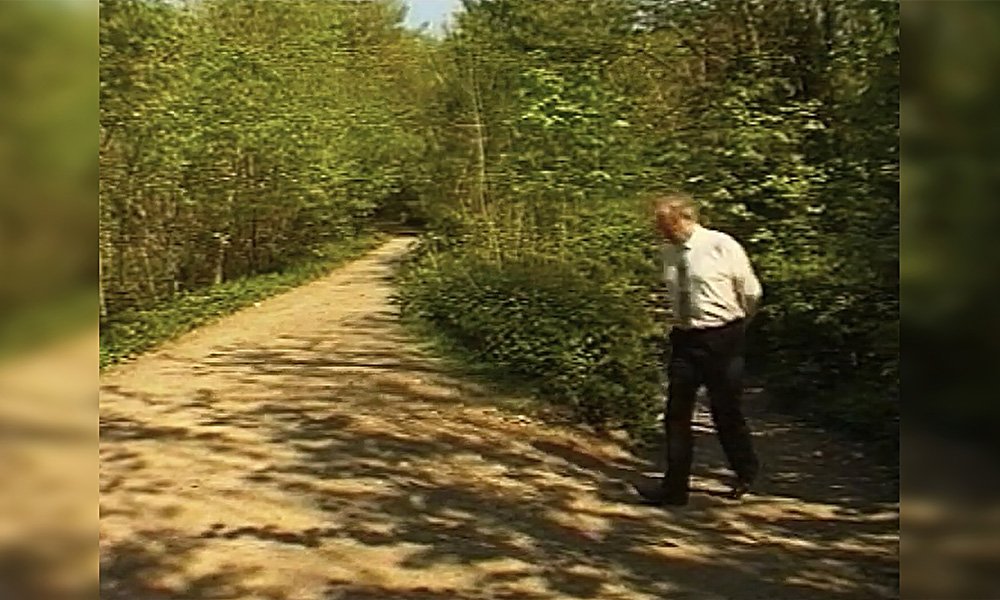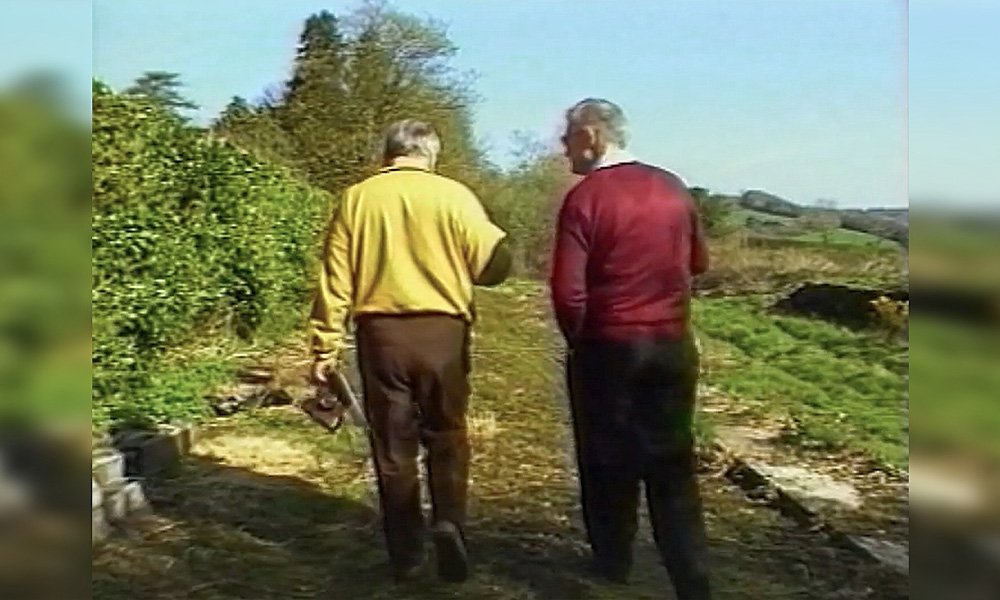I usually blog about the stations featured in my videos, but I just updated the Plymouth to Launceston via Tavistock South video.

This was Launceston Station, taken in 1949. An up train awaits departure, whilst wagons of sawn timber occupy the dock line. Image by C. Barrett
A Video of the Line
Back in 1995, Dad and I made the first of our railway videos, Plymouth to Launceston. Dad had made contact with Anthony Kingdom, the author of the book, The Plymouth, Tavistock and Launceston Railway. Anthony had done many years of research on the branch line and collected many photos. Both him and dad worked on a script and we began to make a video.
Back in the day, we didn’t know much about filming or editing, but dad had an idea. He had worked as a projectionist in the Drake Cinema, Plymouth for many years. One of the other projectionists, Roger Underwood, was a cameraman for TSW (the local ITV station), and had a cameras, any editing suite, and everything needed to make videos.
When dad and I originally set up Aarchive Films, we were transferring cine film to video for people. Again, dad made contact with a few people, who had archive movie footage of the Plymouth to Launceston railway. We transferred the home movies to video, then we needed the modern footage.
Back in the day, we shot on Super-VHS, which was the best non-professional system at the time. Roger, dad and myself, would go and film the local area. We covered as much of the line as we could; some of the stations were now private dwellings, others had completely gone.
An Update
The original video was transferred to DVD, which still sold well. Sadly, dad passed away in 2001, but I have slowly been working on updates for all the videos we made.
This new update of Plymouth to Launceston via Tavistock South, has taken me a good month or so editing. I have been able to update photos and music. I caught up with Anthony last year, and he was kind enough to give me permission of use of images from his books.

Originally, when we did photos, we didn’t scan them, but ‘filmed’ them from a tripod. To pan along an image was a real head ache and always looked ‘jerky’. With this update, I’ve been able to scan the images digitally and then scan them much more smoothly. Chances are, most people don’t even notice, but I do.
Updating the sound, but with Dad’s voice
Dad’s original narration meant a lot to me, so I had to keep it on the videos. Annoyingly, in the narration, he would say things like “Now in 1995”, but I didn’t mind that too much, the important thing was keeping his voice the same.
The other issue that kept coming up was copyright on YouTube. Back in the day, we had limited resources for music. We would buy copyright/royalty free music to use. I had the videos on YouTube, but I had copyright strikes about the music, which I had no way around. This was a two edged sword; as I wanted to keep the narration over he music, but also, some of the music we had was terrible.
I edit with software called Davinci Resolve. In Davinci, there is an audio trick to isolate the narration/voice. This was perfect, I could take out the old music, keep dad’s narration, and then replace bits of the music, with something more appropriate and made the video stand out a little more.
Dad doing a Hitchcock
Dad and I grew up on movies, from Alien to Zulu, we loved them all. As you might know, the director Alfred Hitchcock would always do a ‘Hitchcock’ in his movies; simply be in a scene somewhere. Well, dad or I, always did the same. In Plymouth to Launceston, very early on, at about 6 minutes and 30 seconds, you see a man walking towards the old railway line; that was dad.
He looks completely out of place, but that’s because he always worn a shirt and tie. Just after we see him, there are two ramblers, in their walking gear. He looks very suspicious in a shirt and tie. It still makes me laugh today.

The other time was he was walking with Reg Blackett, who provided some of the movie footage, and again helped as a consultant on the video. At about 14 minutes and 28 seconds, two people walk past the camera. Reg was on the left, dad was on the right.

Plymouth to Launceston Via Tavistock South
Well, here is the updated video. Sadly, I haven’t been able to get back to the locations and do new filming, so the ‘modern day footage’ is from 1995. This year, I plan on getting new filming done, including taking my drone up and doing as much of the line as I can from the air. This was something we did in later videos, but not Plymouth to Launceston.
Apart from that, all of the footage has been updated, there are new photos from the past, and much better music. I hope you enjoy the video as much as dad and I had making it…and as much as I enjoyed making it.

